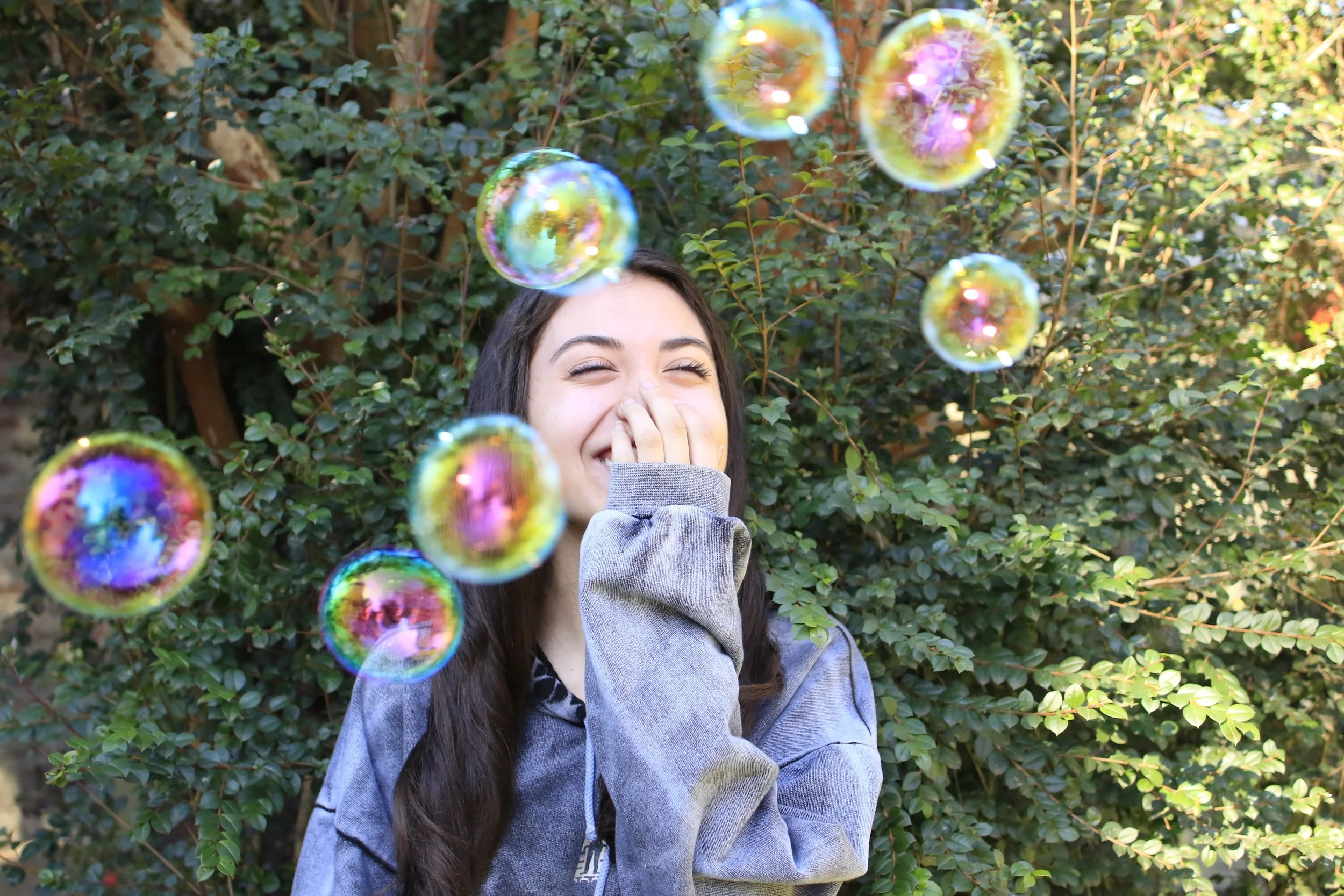Welcome to Kristina Dennis’ official blog where she shares her healing thoughts and stories about recovery, codependence, trauma, and past pain.
Does having desire sometimes feel scary for you? It does to me. The idea of achieving my desires and being happy can feel overwhelming because it brings up issues around fear of failure. Will I always be examining my issues around perfection and not being good enough? Will I feel happy when I do whatever I need to do next or will I be disappointed again? Will I be able to learn how to receive? Believing that I don’t deserve to be happy actually takes the pressure off to be good enough and alleviates the responsibility for living my own life. However, I have learned that practicing self care such as daily thought work and meditation allows me to connect to my true desires and leads to self worth so my desires flow and seem possible.
When I first started on the path of my recovery journey I was introduced to the idea that in order to change outcomes I can change my thoughts, which in turn would change my behavior. At the time (I was dealing with a lot) I didn’t apply this thinking to the many transitions I was experiencing. Transitions were scary, so I feared and tended to avoid them. My belief was that if I did the right things I would be able to get to a magical place with no transitions. I hear a lot of people say something like “I just want things not to change.” Ironically, that has changed for me. I am now more comfortable than ever with change.
When I started in recovery I was introduced to the concepts that self love, actively believing in greater possibilities, and the willingness to do honest emotional work would provide me more insight. The more I embraced these concepts the more the universe opened up and served me opportunities that allowed this way of thinking to grow. This is available to everyone. You can get started immediately by using a gratitude list. This small act of hope starts a powerful transformation and sets in motion an algorithm that brings more hope and gratitude into our consciousness.
Whenever I have a problem, my reaction is to seek knowledge. I picked up the book Burnout, the Secret to Unlocking the Stress Cycle by Emily Nagoski, PhD and Amelia Nagoski, DMA to learn about stress. They write that stressors are not the same as the stress cycle. Learning the difference between stressors and the stress cycle is significant. Even when I am unable to remove a stressor I can still work through and finish the stress cycle. It is the cumulative, uncompleted stress cycles that make us sick and shorten our lives. The acknowledgement of what is stressing us can motivate us to take action and better our lives.
Since reading The Big Leap I‘ve been able to explore the source of my limiting beliefs to allow healing. I have started practicing thought patterns that move me toward a profound life. I have faced my hidden fear and am now speaking on larger stages. This new way of thinking has impacted me so much thatI have I incorporated it into my individualized coaching programs. I have shared these concepts with many others who struggle with limiting beliefs and it has worked for them too.
A trip to the pool is a particularly strenuous endeavor for any parent and requires strategic planning to be successful. This seemingly simple excursion can be an especially demanding and fear inducing effort for special needs parents. Nevertheless, year after year, I prepare myself to provide my child with a public pool experience. My thoughts range from “Can I keep him safe?” to “Will people be kind when observing his behavior?” and can potentially overwhelm my nervous system during the entire stay.
Sometimes I hear people judging their negative self talk and it breaks my heart. I don’t know if it’s even possible to let go of all self criticism. Even after over twenty-five years into my own recovery the negative thoughts still pop up. I‘ve learned that being too rigid with myself does not help at all. Questions like “Why do I keep doing this to myself?” can delay much needed self acceptance. I now have a goal of being more flexible with all my thoughts rather than eliminating the negative ones.
It surprised me to see the word “codependent” in Lizzo’s song. While she may not necessarily be intending to be derogatory, using the word “codependent” like it’s a good thing is nothing short of dangerous. I believe Lizzo meant to depict loyalty to her friend. However, saying “we codependent” is definitely not the correct term to describe a healthy, supportive relationship. The problem is not just Lizzo’s song by any means. The pervasive nature of how our entire society portrays codependency as a positive attribute of a relationship is alarming because it can influence our behavior, how we connect with others, and how we show up in a relationship.
I think many codependents struggle with asking for and receiving help. I know I do. I was reminded of my resistance to asking and receiving help while listening to a fellow coach outline her transformation process. She shared some amazing insights. One thing in particular that got my attention was that if you habitually don’t complete tasks it’s because you may struggle with receiving the rewards. The inability to finish projects speaks to our fear of receiving the gifts that completing the project may bring.
This is my codependency. I want so much to be liked and treasured that I will forgo my need to be treated with respect in order to please others. Rather than meet with her, I took time to review the history with this person. I remembered the painful moments that led to our estrangement and realized what I needed was to make the painful memories go away. Ultimately I know that confronting her will probably not make me feel better. I cannot rewrite history, nor can I control her behavior. Sometimes we just have to let go of people. This is acceptance.
Sometimes I just want to be “normal” and not do the work that recovery requires. It’s not that I want to drink but I just don’t want to have to work so hard for my serenity. As someone who’s been on this road of recovery since 1997 I know that to truly recover I need to get real and honest. There have been times when I wasn’t that excited to move forward and felt like I needed a break from the hard emotional work of recovery, but I knew better than to lapse back into the comfort of denial. I’m happy to share that recovery work is always worth it. Recovery is now my “normal.”
When I started to incorporate sighing in my day it felt good. I didn’t realize that I was holding so much stress in my body. I decided to pair it with a normal activity like doing the dishes so I could start to sigh on a regular basis. My husband quickly took notice and asked me if I was okay. I shared that I had been directed to sigh more. He told me that he had never heard me audibly sigh. Which led me to ask the question: had I been suppressing sighing for the years I had been with him? My guess is yes.
As a recovering codependent I have become acutely aware of my own triggers. I now know that my past self wasn’t equipped to recognize and receive love. I wasn’t familiar with being loved or showing up without my protective shield. I was familiar with the cycle of love bombing and then the inevitable push away that happened when emotional intimacy was starting to occur. Today I understand that going through my difficult healing journey allows me to see clearly when someone else is in need of healing their emotional pain.
Having the ability to make a gratitude list is essential to living a beautiful life. This practice was first taught to me when I got sober and frankly I wasn’t always keen to do it. Over the years it became not only a practice, but a way of thinking. I am not suggesting that we become Pollyannas and ignore pain or negative situations because we must recognize and address the things that are not working in our lives.
For years I focused on my negative traits and actions with little to no regard for the positive parts of myself. I had a belief that to acknowledge what I had done right served no importance to me and to focus on them would make me a self-centered, heinous individual. I was afraid that If I thought too highly of myself others would think I was selfish. Will I stop trying to improve if I only give myself grace? Will I become lazy or complacent if I’m focused on my accomplishments?
I spend an enormous amount of time trying to understand and define my emotions instead of feeling them. This work is well spent, powerful, and gives me a great set of skills to show up in relationships. It helps me understand codependency and addiction and the extreme cost of not addressing each of these. When I feel my emotions I am truly in recovery and I get to move on.
Whether you participate in Easter services or not the ethos of rebirth is around you. As a member of ACOA (Adult Children of Alcoholics) I’ve learned that I need to re-parent myself. Many things have been written about the inner child with a focus on the pain and fear that we feel. It’s difficult to get to a new way of thinking when we’re in pain and afraid. I’ve grown skills to comfort myself. Through that work I’m happy to say that I have less fear and pain.
After watching the film CODA I became curious about where I’d felt these emotions before. It didn’t take long for me to realize that I had felt similar grief as a child. I had felt that I didn’t belong, and there was no place for me in my childhood home. I grieved for myself. It lifted shortly after and I marveled at how my own childhood trauma no longer stings with messages of not belonging. It is also not the same experience my son is having.
I highly recommend Brené Brown’s book Atlas of the Heart: Mapping Meaningful Connection and the Language of Human Experience. Full of complex ideas and stunning revelation, it spoke to me specifically about hope. Hope is not (as I previously thought) necessarily a warm, fuzzy emotion or feeling. Brown says it’s not a feeling. She says that in fact hope is simply a way of thinking. A cognitive process. This is great news to me because even if we’ve never been hopeful we can change. We can change our brains!
We must forgive ourselves for having an inner critical parent. Recognize that it served a purpose for a long time. Either chiding us to not get emotional when people left or scaring us into performing better and keep us focused on our lives. We get into trouble when we let the inner critical parent run the show but that doesn’t mean we’ve failed at becoming more positive and well adjusted people. It just means that we haven’t become acquainted with that part of us well enough.
Eight years ago I was spent. Physically exhausted, living on fumes and scared. Would I be safe if I couldn’t keep moving at neck breaking speed? Becoming a mother changed my life so completely that it’s hard to think of any other contribution as big except for my sobriety. I needed to help my non-verbal child get better. People applauded my selfless actions. “He’s so lucky to have you as his mom,” they said, and I loved it. I found myself divorced and alone.
Trauma has infected my original family and it is a big part of my story. However I have learned that just because it played a big role in my childhood it doesn’t have to be a major part of who I am today. The process of integrating our many selves is not easy but it is worth it. As children who have experienced traumatic events we rely on old survival skills like shoving the pain deep down.
If you have discovered that you are repeating codependent patterns here is the first step: you must learn about you. You must become an expert in you. When we start to learn about ourself we can discover the beauty that is us. Ask yourself “What is my favorite color?” or “What do I like to do on Sundays?” Learning about ourselves opens the door to liking ourselves for who we are, not what we do.
When we are told that thinking about ourselves is bad, shameful, or selfish we rewire our brains to stop. If we are conditioned to put others first it becomes our default. For many of us it’s automatic to put others first. Even if you didn’t grow up with trauma, you probably received the message that in order to be a good person you must be selfless.
Many of us are familiar with the inner child concept but we might also consider the inner teenager within us. One of the ways I’m healing my trauma is to reparent myself in a loving way. I believe I have always been at war with my inner teenager. I believe that I bypassed the important developmental teen years and went from child to adult too quickly. Are you at war with your inner teenager?
How do you heal the wounds from childhood? You can practice identifying your thoughts and feelings. You can choose to refrain from continuing the critical parenting of yourself. You can replace the judgment about how you’ve blown it again with a compassionate acknowledgement of the pain. This is awkward at first but that will go away with practice.
Obsession about a love interest is not romantic. It’s dangerous and not good for either party. Real love is wanting the best for the person, even when it means letting them go. I know that this type of love may not be dramatic enough to sell movie tickets, but romantic comedies should come with a warning label. So many love songs seem to say “I’m nothing without you.”
Fever is our bodies way of fighting sickness, inflammation is natural but it hurts. This also applies to emotional pain. My world is full of lessons and different emotions and sometimes they will cause pain. Sometimes it is appropriate to feel bad. I know it’s not fun but unprocessed grief have kept me stuck.
I will admit it. I am completely ready to put a pin into this year but, not for the reasons you may think. I am very excited about the future. I am also completely terrified about the future. Thankfully I am more excited than terrified, for today at least. This past week I did an exercise with my dear friend for my coaching and speaking business.
For many of us this can be a time that is sad and frustrating. The world is on full tilt, making it difficult to relax for super turned up nervous systems like mine (do you relate?). Trauma may be triggered with the festivities. It’s okay to grieve. It’s okay when you remember a particularly difficult memory, in fact it’s helpful in healing.






























